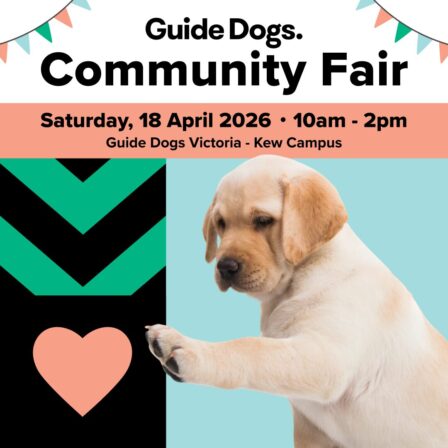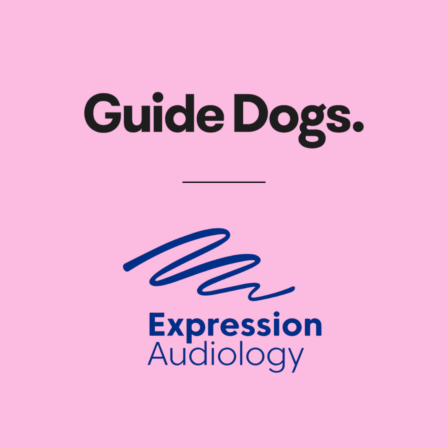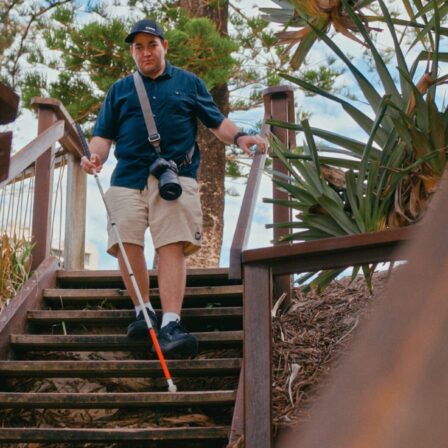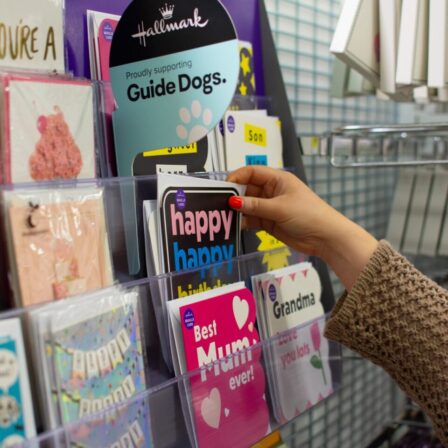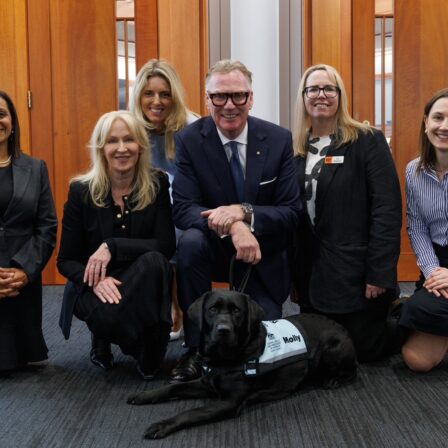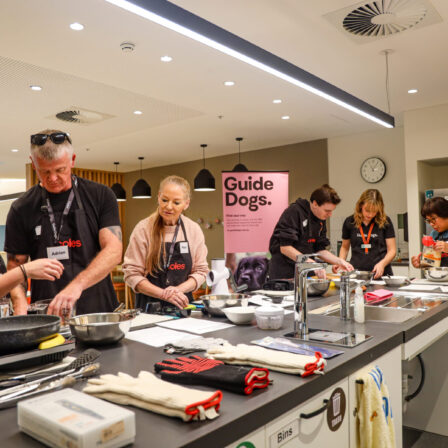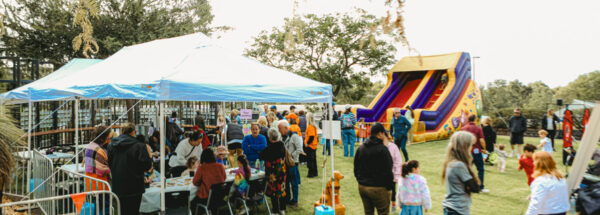News
Keeping pet dogs safe over Christmas and the holidays
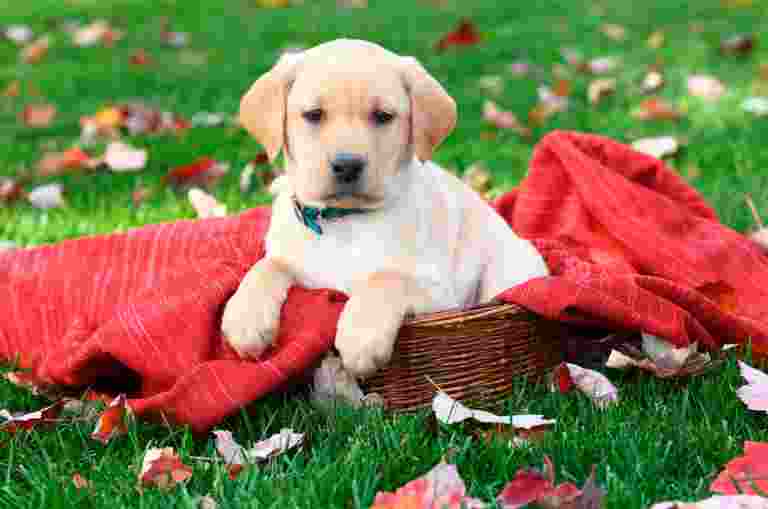
With the holiday season and gift shopping excursions now well underway, we must also consider family pets and their happiness this Christmas. So, Guide Dogs Victoria and our expert team are here to provide a few tips on how to keep your pets happy, healthy and out of harm’s way during the festivities.
There are several dangers associated with Christmas for pups and dogs, including the presence and consumption of foods that are extremely dangerous for dogs (e.g. macadamia nuts, chocolate, dried grape products) and the consumption of foreign bodies such as Christmas decorations and gifts that are not usually in your home.
Keeping pets safe over Christmas
Now, we all know that dogs can easily sniff out tasty treats – and gifts of food wrapped up in pretty paper will likely not deter yours! Place things out of reach where possible and pay close attention when you are gathering with friends and family to celebrate the season. And don’t be afraid to remind people about the dangers of offering Christmas treats to your dog.
To save yourself the hassle of emergency vet visits over the holidays, keep the following out of reach and be prepared by limiting free access to Christmas trees, gifts and foods that may be of interest to your dog.
Decorations
It is advisable to set up your Christmas tree in a room which the pup does not have access to, or to place a playpen or barrier around the tree to prevent pets accessing the tree, decorations and presents. Keep tinsel and other garland materials well away from dogs, and be aware that glass ornaments might look fun to crunch – but will do considerable damage to a dog’s mouth and digestive tract.
Foods
Grapes and grape products (including cherries) are highly toxic to dogs. Christmas cake and pudding are especially dangerous to dogs as they contain sultanas, currents and raisins. Should your dog eat any sultanas, or products containing dried or fresh grapes, please contact a veterinarian immediately.
Chocolate is another toxic food that is present more often in a household at Christmas time. The compound in chocolate that is toxic to dogs is theobromine, which acts on a dog’s nervous system, heart muscle and renal system. The early (mild) symptoms of chocolate toxicity include vomiting, diarrhoea and hyperactivity. Depending on the amount of chocolate consumed, these symptoms can lead to an increased heart rate, restlessness, muscle twitching, panting, whimpering and increased urination and water consumption. Severe toxicity leads to shock, seizures, coma and even death, so please be careful.
The type and the amount of chocolate consumed, as well as the body weight of the dog, will determine whether the consumption of chocolate is a veterinary emergency, or if you should speak to a vet and monitor their symptoms.
You can calculate the severity of toxicity based on the dog’s body weight, the amount and type of chocolate eaten to help with this decision using this online pet toxicity calculator.
It is important that a vet induces vomiting within two hours of chocolate consumption if toxicity is severe.
Additionally, please keep in mind that any low-sugar or sugar-free sweets contain artificial sweeteners, most of which are toxic to dogs.
Any food left unattended on low tables (or even higher tables) is an open invitation to dogs. When entertaining, keeping them next to you on a leash can help prevent stealing and scavenging behaviour. Educating guests about your dog’s diet and why certain foods must be restricted will also help.
Used kebab sticks are also very dangerous to dogs and are often placed on an empty plate at BBQs and gatherings. These plates can be placed on the ground, low tables or accessed by those pups who ‘counter surf’, so please be mindful when barbequing at home or going to friends’ homes that your dog is supervised at all times.
Visiting other people’s homes
Remember that for pups most poisonings happen in other people’s homes. Please check for potential hazards, including the presence of rat and snail bait, the use of compost and fertilisers and the presence of objects that, if swallowed, may obstruct a pup’s gut before allowing the pup free-range in anyone else’s garden or home. If you are uncertain of how safe another person’s home or garden is for the pup, you can keep the pup on-leash with you throughout the visit.
Christmas presents for dogs
Please be mindful of cheap dog toys and food at Christmas for dogs as they can be broken and ingested easily and cause blockages. Commercial stockings for dogs can make their tummies upset and those with skin allergies itchy. Avoid cheap pet gifts such as the following:
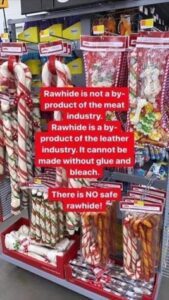
Image description: Budget Christmas stockings filled with dog treats and oversized candy canes for dogs to chew on hang on shelving in a store. Text covers the image saying, “Rawhide is not a by-product of the meat industry. Rawhide is a by-product of the leather industry. It cannot be made without glue and bleach. There is NO safe rawhide!”
Instead of purchasing these cheap and potentially dangerous products, make your own stocking filled with reliable, proven toys and treats that your dog has eaten previously and played with safely.
Keep in mind that giving dogs cheap bones can cause digestive issues and unnecessary vet visits.
Christmas Day tips for pets
Keep your pet dog healthy and happy on Christmas Day with these suggestions:
- Create a calm, quiet spot for them away from noise and festivities.
- Exercise the dog before any guests arrive.
- Keep Christmas flowers and plants out of reach. Be aware of typical Christmas plants which are toxic to dogs (e.g. poinsettia).
- Quickly clean-up any bows, plastic and ribbons so there is no chance of pup swallowing them by mistake.
If you find that your dog has consumed any toxic foods or has ingested anything inappropriate, contact your veterinarian immediately for advice and treatment.
Now that you know what to look out for, stay vigilant this festive season.
Wishing you safe and happy holidays from all of us here at Guide Dogs Victoria!
